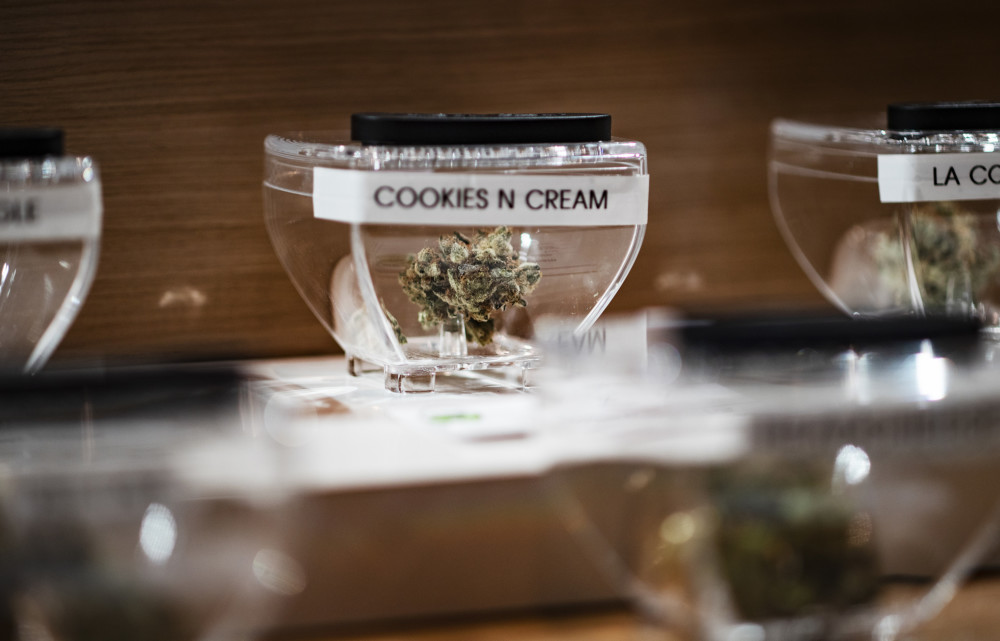By Ken Dixon
Connecticut Post, Bridgeport
WWR Article Summary (tl;dr) The weekend-long event featured 30 panels and workshops and more than 100 vendors. From seed merchants to testing labs to skin care entrepreneurs, it was all about making green.
SPRINGFIELD, Mass.
Here in the heart of the New England’s blossoming marijuana industry, thousands gathered this weekend for the first convention aimed at showcasing business opportunities — and jobs — in a national market projected to reach $2 trillion over the next decade.
The message for Connecticut cannabis connoisseurs was clear from Massachusetts: Don’t wait for elected officials to act.
“Make a lot of noise,” said Dick Evans, a lawyer from nearby Northampton who led the state’s marijuana-reform effort for 40 years, and succeeded in a statewide 2016 ballot initiative.
“Make a lot of phone calls,” he said in an interview following an afternoon keynote address in the MassMutual Center. “Show up. Be heard. That’s the cardinal rule in all political change and that’s what I encourage people in Connecticut to do. And it’s tough to do on this issue, because a lot of people, still, to this day, don’t like to go out in public and publicly support the marijuana cause. But there’s no choice.”
“In my opinion we have to get voters involved by making calls on the Legislature and getting active in Hartford in order to make sure that people in Hartford understand how important this is to us,” said Andi Gray, of Norwalk, whose late-morning lecture on business planning and organization kicked off the two-day event.
A business consultant who is co-founder of the Business Owners Hemp & Cannabis Association, Gray stressed that even though several General Assembly committees approved bills that made progress this year, there is little likelihood of the landscape changing during the 2020 election cycle. And Connecticut’s cumbersome constitutional amendment process, in which the General Assembly would have to vote to phrase a question for a likely statewide vote in 2023, is too long a delay, as the cannabis market is on the verge of a boom that happens once in a hundred years.
Gray noted that Illinois lawmakers recently approved retail sales of cannabis for recreational use that will start next January, becoming the first state legislature to approve full legalization. Sales tax revenue for that financially strapped state is expected to reach $500 million in the first year, she said.
Meanwhile, in Massachusetts, where retail sales began in January, cannabis regulators are looking closer at issues of public places to gather and smoke socially, and most important, concentrating potential economic opportunities in minority communities that were the targets for mass incarceration during the anti-drug campaigns executed by local and federal law enforcement.
Derrell Black of Boston, state chapter president of Minorities for Medical Marijuana, said at the organization’s vending booth that he’s building awareness in communities that have been disproportionately affected by police.
“Big businesses want to come inside our communities and have different types of businesses and I feel like because of the war on drugs, the people there should be first at getting businesses within their community,” Black said. The failed Connecticut legislation included provisions for minority communities to win some preferences in awarding marijuana licenses.
About 2,000 people were expected to attend the weekend-long event, featuring 30 panels or workshops, and more than 100 vendors, from seed merchants to testing labs, from property developers to skin care entrepreneurs riding the CBD wave that uses non-psychoactive cannabis called hemp, the growing of which did win approval this year in the Connecticut General Assembly and Gov. Ned Lamont signed it into law.
Massachusetts regulations prohibited traditional marijuana, or even related products with the psycho-active chemical THC, onto the exhibit floor.
Still, for Paul Kirchberg of Milford, Connecticut, state president of the National Organization for the Reform of Marijuana Laws, the trip north was like a visit to a free state. “It’s very liberating here to be among other people in the cannabis industry, to be in a large venue like MassMutual and be able to be free of any prosecution or persecution. We hope Connecticut will follow suit quickly.”
For Evans, who was given the “Mr. Marijuana” nickname by The Boston Globe for his activism in pushing for legalization, the $140 million in new state revenue generated in the first six months of retail sales is a side benefit. “The best thing is we stopped arresting people,” he said, celebrating the end, in Massachusetts, of systemic stigmatization of marijuana users and the underground market.
“We legalized marijuana because of the injustice of prohibition,” Evans said. “Marijuana prohibition was conceived, was implemented, was enacted, was deployed for the principal purpose of providing an instrument of oppression against minorities.”
He said that as more people have access to cannabis, its benign effects become more widely realized.
“The fact is, the sky hasn’t fallen anywhere yet where marijuana has been legalized,” he said. “Yeah, there have been a couple bumps in emergency room admissions for people who don’t follow the rules about going low-and-slow with edibles.” He predicted that the plant, used by humans for thousands of years, could become the “miracle drug” of the 21st century.
“On the social and personal level, marijuana will be recognized as a godsend to humanity because of its ability to produce those qualities that Carl Sagan, the astronomer mentioned,” Evans said. “He liked to ask the question what’s wrong with using a drug that produces serenity, insight, sensitivity and fellowship; qualities so desperately needed in this mad and dangerous world?”
___
Distributed by Tribune Content Agency, LLC.














































































































































































































































































































































































